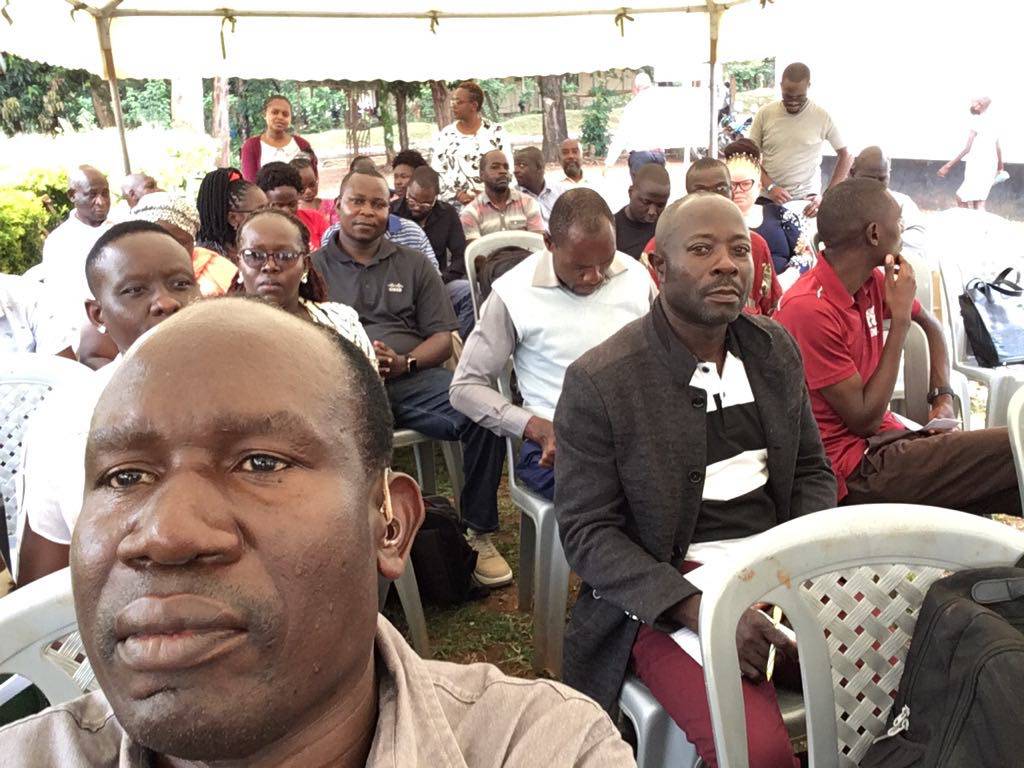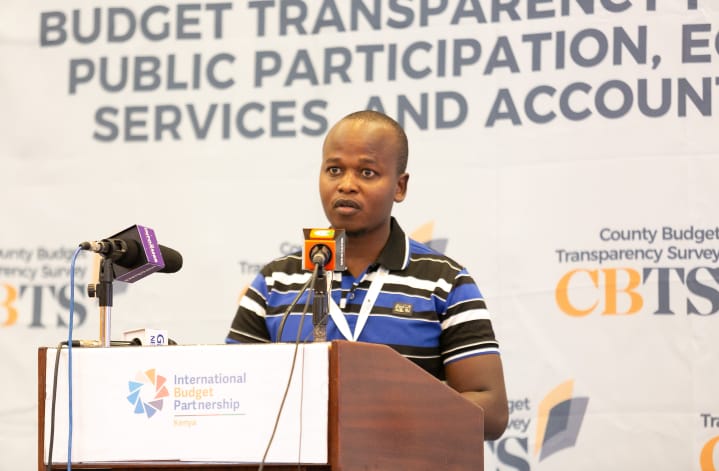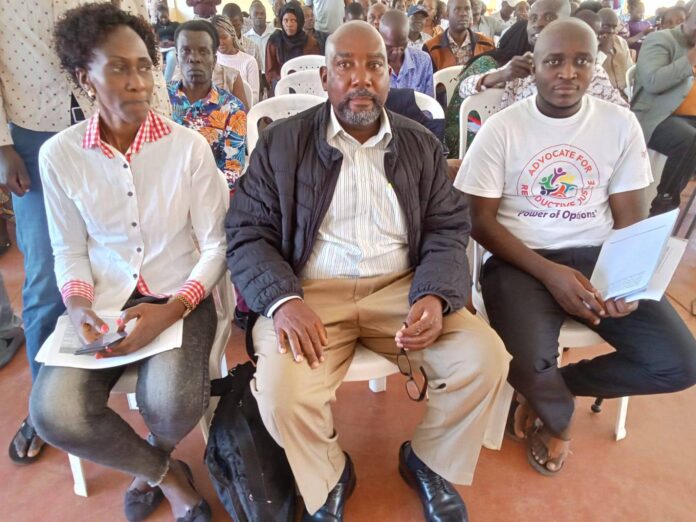By Alex Odongo
The Kenyan citizen has been granted powers under the Public Finance Management Act 2012 to give their views on matters that touch on how their finances should be spent through public participation.
According to Kenya’s County Budget Transparency Survey (CBTS) 2023 report, information on public participation continues to improve steadily, however, it remains the least provided information in county budget documents.
Many countries still need help with the subject of public participation, especially regarding how the process is carried out, including how the public is informed, the amount of time allotted for perusing the documents, and even the technique employed to carry out public participation.

I embarked on a journey to find out the answers to these questions from the residents of Kakamega County, members of the civil society, and county government officers in the Department of Budgeting and Finance from Kakamega and Busia counties.
My first concern was to find out whether the citizens of Kakamega County are satisfied with how public participation is conducted in their county and they had mixed views.
Rukia Yussuff, the coordinator for Uraia Kakamega County, identified a number of challenges she has encountered during public participation exercises, including hostility from those in charge of the process, a lack of time to read and familiarize herself with the document, and short notice for event attendance, among other challenges.
“When we attend these public participation exercises, they ask us who has invited us forgetting these are supposed to be public exercises open to any member of the public.”
“They also bring bulky documents which we are expected to read and present our views on the spot without having enough time to read and understand the document,” said Rukia.
Abdirahman Alusa, another Kakamega resident, claimed that during public participation exercises on County budget documents, some people attend when they have already been prepared in advance by the convenors on what to speak.
“The organizers ferry people who have been coached to heckle anyone who presents negative opinions.” Others fear to speak their minds because they don’t want to antagonize the organizers because they have been promised money.” added Alusa.
Ibrahim Sakali, a Kakamega County resident, accused local politicians, particularly Members of the County Assemblies (MCAs), of sabotaging and interfering with public participation processes at the counties by transporting their supporters to the venues and taking up excessive amounts of time to speak, thereby depriving the public of a chance to voice their opinions.
Ms Kathreen Shiundu, Secretary General of the Kakamega Disability Caucus, spoke on behalf of people with disabilities and highlighted a variety of problems they face during public participation in Kakamega County.
“Some modes of communication such as the use of public address system to mobilize people to attend public participation exercises are not favorable to the deaf,” said Kathreen. She added that the biggest challenge is the lack of feedback from the county government of Kakamega on their submissions.
Edward Wambani, the chairman of Kakamega County’s civil society, reiterated the opinions expressed by the locals. One of the main issues, he said, was the hatred that County officers’ conveners showed toward members of the civic society. He also expressed doubts about the approach taken in carrying out these exercises.
“We are asked who invited us when we attend public participation exercises and sometimes we have snatched the microphone when we ask them hard questions” Wambani disclosed.
Jack Agolla, a budget facilitator for the Lake Region Budget Hub and a member of the civil society from Busia County, addressed the general challenges that the Lake Region’s counties face when it comes to public participation in budget documents. These issues include the lack of internet access in the local community, the use of newspapers as the only medium of public communication, and delays in uploading budget documents to county websites.

Agolla identified the inability to post quarterly implementation reports and citizen budgets on county websites as the most significant difficulty facing counties in the lake region’s budget hub, noting that all 11 counties in the lake region have never published the two budget documents.
I reached out to the Kakamega County Government officers to respond to some of the concerns expressed by the public and civil society regarding the challenges encountered during public participation and the dissemination of budget documents, but they declined to speak and instead directed me to the governor or deputy governor.
However, I received feedback from Stephen Odhiambo, the County Budget and Economic Forum (CBEF) secretary from Busia County, who addressed some common issues such as bribery allegations leveled at participants, insufficient time for participants to submit their views, the meddling of local politicians, and the communication channels they employ to promote public participation events.
Odhiambo admitted that participants receive little tokens, such as lunch or transportation reimbursement, but refuted the claims of bribery. He accused public participation organizers of sending out short notifications for their events, spending excessive time outlining the documents, and not giving the public adequate time to voice their views.
Odhiambo went on to say that the most popular way to publicize events involving public participation is through the usage of sub-county administrators, ward administrators, and village administrators. He went on to say that information is also disseminated through traditional media like newspapers, local radio stations, and social media sites like Facebook, WhatsApp groups, and county websites.
Kakamega residents and civil society members proposed various ways to solve the issues stated.
Edward Wambani, Chairman of Civil Society in Kakamega County, and Ms. Kathreen Shiundu, Secretary General of the Kakamega Disability Caucus, want the county government of Kakamega to implement the draft public participation and civic education policy 2020, which has been discussed and is already at the cabinet level of the Kakamega county government.
Wambani also wants the county government to have a clear methodology of conducting public participation exercises instead of just using one mode of asking citizens “what projects they need”.
Kathreen Shiundu urged the Kakamega County government to provide funds for civic education to the community regarding public participation, as the majority of participants come because they are offered incentives like cash, soda, or bread, but they are unaware of the issues that would be discussed.
On the other hand, Rukia Yussuff, the coordinator for Uraia Kakamega County, wants the County government of Kakamega to decentralize public participation exercises to villages rather than only central locations within town centers. She also requested the county government to make the documents available to village leaders in a timely manner so that they could reflect their residents’ views.
Jack Agolla, a budget facilitator at the Lake Region Budget Hub, urged the 11 counties in the Lake Region Budget Hub and other Kenyan counties to publish county quarterly implementation reports and citizen budgets so that citizens can track progress on how their budgets are being implemented and easily understand the program-based budget.
Stephen Odhiambo, CBEF Secretary for Busia County, advised the county administrators in charge of organizing public participation exercises to make the materials available to individuals ahead of time. He also wants the exercise to be available to the general public, rather than being limited to a select group of people who are handpicked for each session.
According to Kenya’s County Budget Transparency Survey 2023 report, the overall score on public participation of the counties that provided information is 15 out of 100 points, an improvement of 5 points compared to CBTS 2022. Kakamega County scored 25 out of 100 points on the level of information on public participation provided in its budget documents according to the CBTS 2023 report.
However, all is not lost as the Kakamega County government still has room for opportunities by strengthening the information it provides on public participation.
Moving forward, state and non-state actors should keep advocating for robust public participation mechanisms, comprehensive citizen budgets, and county quarterly implementation reports, which will enable citizens to hold their governments accountable.
Ultimately, cooperation between the government, civil society, and the people will be necessary to find a solution to this issue at both the county and national levels.
Alex Musikoyo Odongo is a Budget Champion, Freelance Journalist, and Media trainer.
alexmusikoyo@gmail.com














